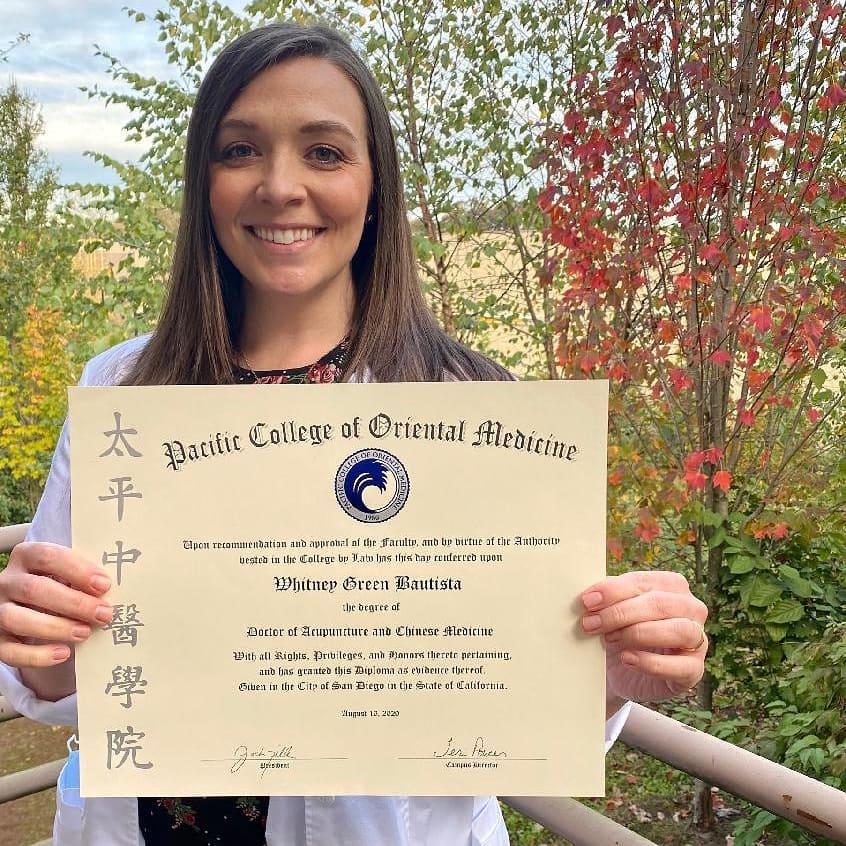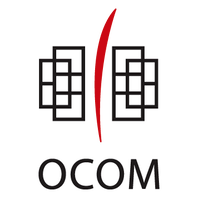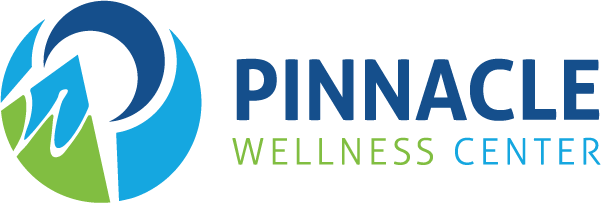Recently, Whitney completed her Doctorate in Acupuncture and Oriental Medicine from Pacific College of Oriental Medicine. This program focuses on evidence-informed practice, integrative diagnostics, current research, and inter-professional communication. Congratulations to Whitney!

In fact, becoming a Licensed Acupuncturist is quite the process! From my own experience at the Oregon College of Oriental Medicine (OCOM), to start off, you need to have an undergraduate Bachelors degree. You also need to complete prerequisite courses such as Biology, Chemistry, and Psychology. Once these are done, then you’re ready to apply to a Masters program. An accredited Masters program will typically take 4 years learning all there is to know about Traditional Chinese Medicine.
This includes……
Acupuncture:
- Point location – Know where over 365 points are located and how to find them on the body.
- Points actions and indications – Why we use the points, what they do, their names and common uses.
- Practicum – Practicing needling on each other.
Herbs:
- Chinese individual herbs – Know over 365 single herbs, their names, their actions and indications, flavors, what they look like.
- Chinese herbal formulas – Learn what individual herbs make up each formula. Know how these herbs work together to create a formula, and what each formula is used for.
- Work study in the Herbal Medicinary – Practice by working in the campus Medicinary, identify and use individual herbs and herbal formulas, fill prescriptions for patients, and learn about tinctures, pills, and topicals.
Theory:
- Traditional Chinese Medicine concepts and theory.
- Differential diagnosis and how to diagnose illnesses and diseases.
- Pattern differentiation depending on an individual and how they present based on signs/symptoms/characteristics.
Other Modalities and Body Work:
- Moxibustion
- Cupping
- Gua sha
- Qi Gong/Tai Qi
- Shiatsu/Tui Na.
We also learn about Western medical diagnosis, anatomy, and physiology. This is to allow us to be able to better communicate with Western Medical Doctors.
At OCOM, during our last year of school we are Interns in the school clinic. Here we see and treat our own patients under a Supervisor. We also do an Externship at one of the Community Acupuncture Clinics in Portland. Lastly, before we officially graduate, we must complete a Research Project and present it to our fellow classmates. We are able to pick a topic of our choice.

Then What?
Then, after 4 years of a full-time, year-round Masters program we take the National Boards to become licensed. NCCAOM (National Certification Commission for Acupuncture and Oriental Medicine) validates our practice. There are 4 boards: Acupuncture with Point Location, Foundations of Oriental Medicine, Biomedicine, and Chinese Herbology. In Oregon, you don’t need Chinese Herbology to become an Acupuncturist, unlike in some other states. However, both Whitney and I opted to take the Chinese Herbology board to become licensed Herbalists in Oregon.
The next step is to apply for our State Medical License.
After all that, we can officially start practicing! It is a long and often turbulent road to become a Licensed Acupuncturist and a lot more goes into it than many might guess. But we hope this gave you a peek into the journey of an Acupuncturist!

